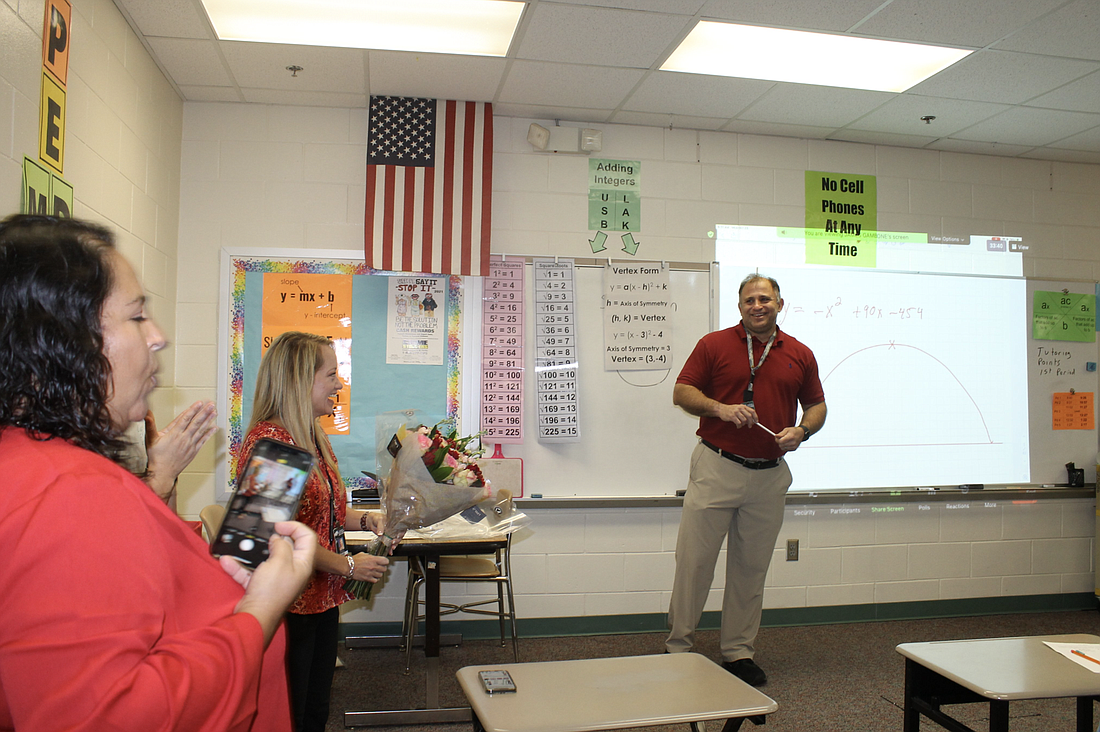- August 22, 2025
Your free article limit has been reached this month.
Subscribe now for unlimited digital access to our award-winning local news.

James Gambone had wanted to become a lawyer. He was majoring in political science with a minor in criminal justice when one class changed his career trajectory.
“Some students may never use the quadratic formula in their life, but in the process of teaching the quadratic formula, we have the opportunity to teach the students through a growth mindset approach how to problem solve and not give up."
— JAMES GAMBONE, Flagler Palm Coast High School Teacher of the Year
The class, called “Minorities in Crime,” required students to volunteer at an inner-city elementary school in Jacksonville.
Gambone was paired with two fourth grade children, tutoring them for a semester and seeing major gains in their reading and math skills — and in their outlook on school in general.
“I realized from that experience that my true calling was teaching, and more specifically, teaching students that have the most difficulty in school,” Gambone wrote in an essay for his Teacher of the Year application.
He changed his major, earning a bachelor’s in elementary education, and, later, a master’s in educational leadership.
“Twenty-six years later, my greatest inspiration still comes from seeing the excitement on a child’s face when they realize they can be successful in math class,” he wrote.
He began teaching math at Flagler Palm Coast High School — his alma mater — in 2000. He also coaches FPC’s girls flag football program, and has led his team to several district championships, and made it to the final four of the state playoffs in 2006.
Gambone realized that a major reason many students struggle with math is that they lack confidence.
He scaffolds problems to build their skills. Sometimes, the source of their confusion isn’t math, per se.
“The lack of understanding is many times due to the vocabulary,” he wrote .
He tries to incorporate reading when teaching math, and works to make sure students understand the material on a conceptual level.
“The so-called ‘drill and kill’ teaching of math is over,” he wrote.
And he gets strong results: In 2020-2021, as COVID-19 disrupted classes, the state end-of-course pass rate for sophomore first-time test takers was 12%. For Gambone’s 163 students, it was 38%.
To support students who are struggling, Gambone began an online algebra tutoring program that began with 10 or 15 students and now has more than 50.
“I find that students who rarely ask questions in the classroom setting would ask clarifying questions during online tutoring, often using the chat feature,” he wrote. “Over time, these same students began to participate more freely in class.”
Math coursework can help students learn life skills that will serve them in the future, he wrote.
“Some students may never use the quadratic formula in their life, but in the process of teaching the quadratic formula, we have the opportunity to teach the students through a growth mindset approach how to problem solve and not give up,” he wrote. “Whether our current students become entrepreneurs or work for a company, their success will depend on their ability to dissect a problem and figure out how to solve it.”
Your free article limit has been reached this month.
Subscribe now for unlimited digital access to our award-winning local news.